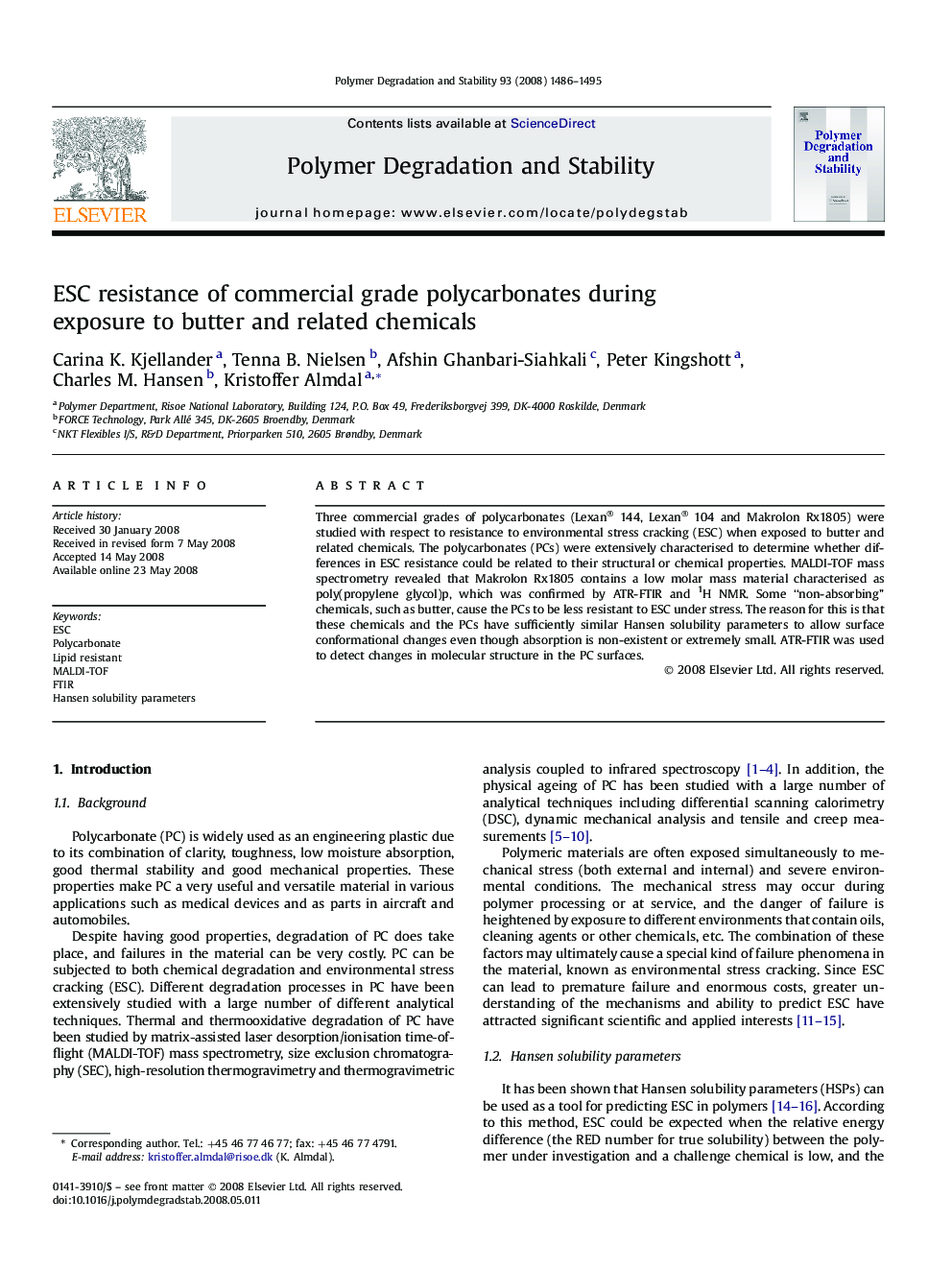| Article ID | Journal | Published Year | Pages | File Type |
|---|---|---|---|---|
| 5203726 | Polymer Degradation and Stability | 2008 | 10 Pages |
Abstract
Three commercial grades of polycarbonates (Lexan® 144, Lexan® 104 and Makrolon Rx1805) were studied with respect to resistance to environmental stress cracking (ESC) when exposed to butter and related chemicals. The polycarbonates (PCs) were extensively characterised to determine whether differences in ESC resistance could be related to their structural or chemical properties. MALDI-TOF mass spectrometry revealed that Makrolon Rx1805 contains a low molar mass material characterised as poly(propylene glycol)p, which was confirmed by ATR-FTIR and 1H NMR. Some “non-absorbing” chemicals, such as butter, cause the PCs to be less resistant to ESC under stress. The reason for this is that these chemicals and the PCs have sufficiently similar Hansen solubility parameters to allow surface conformational changes even though absorption is non-existent or extremely small. ATR-FTIR was used to detect changes in molecular structure in the PC surfaces.
Related Topics
Physical Sciences and Engineering
Chemistry
Organic Chemistry
Authors
Carina K. Kjellander, Tenna B. Nielsen, Afshin Ghanbari-Siahkali, Peter Kingshott, Charles M. Hansen, Kristoffer Almdal,
